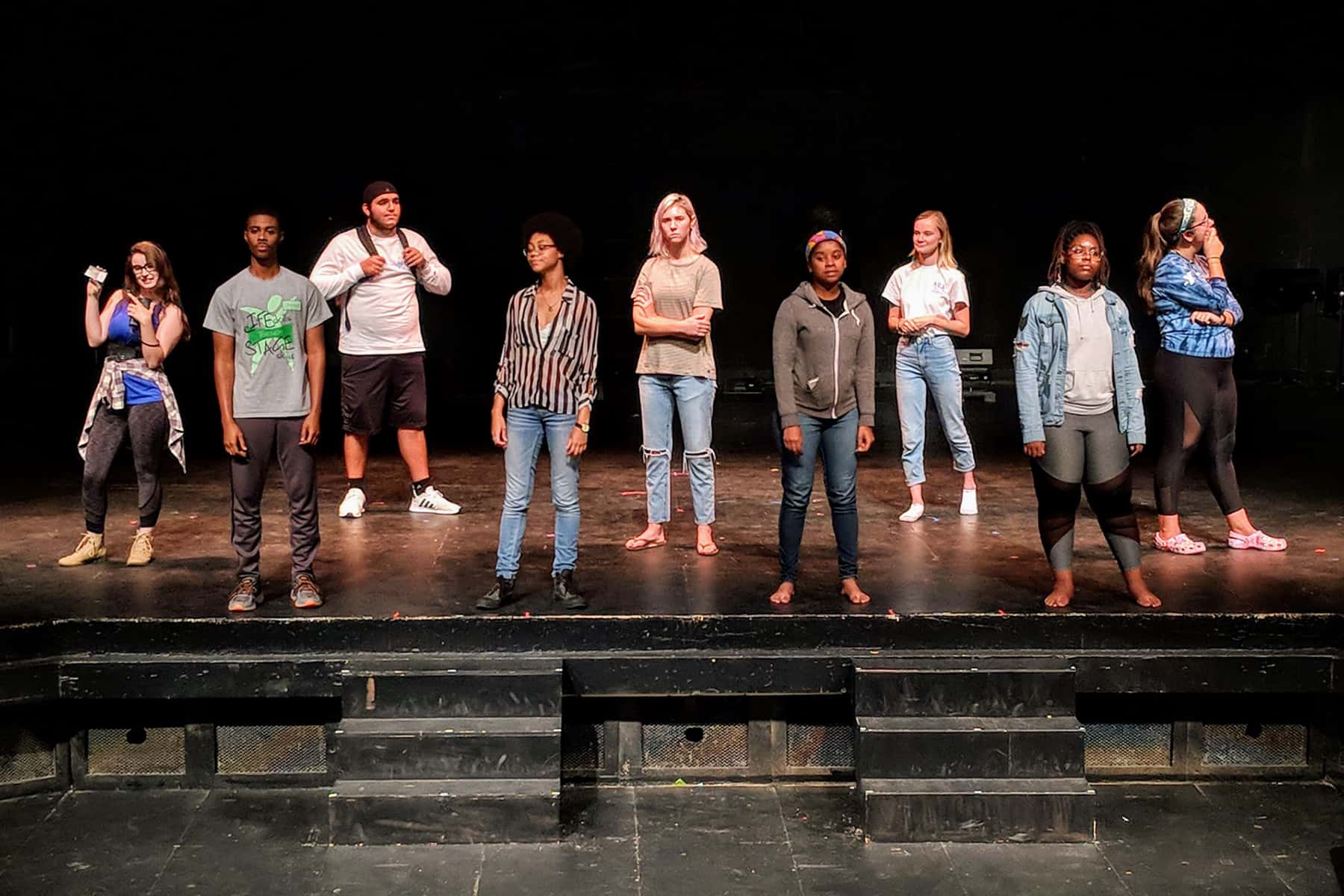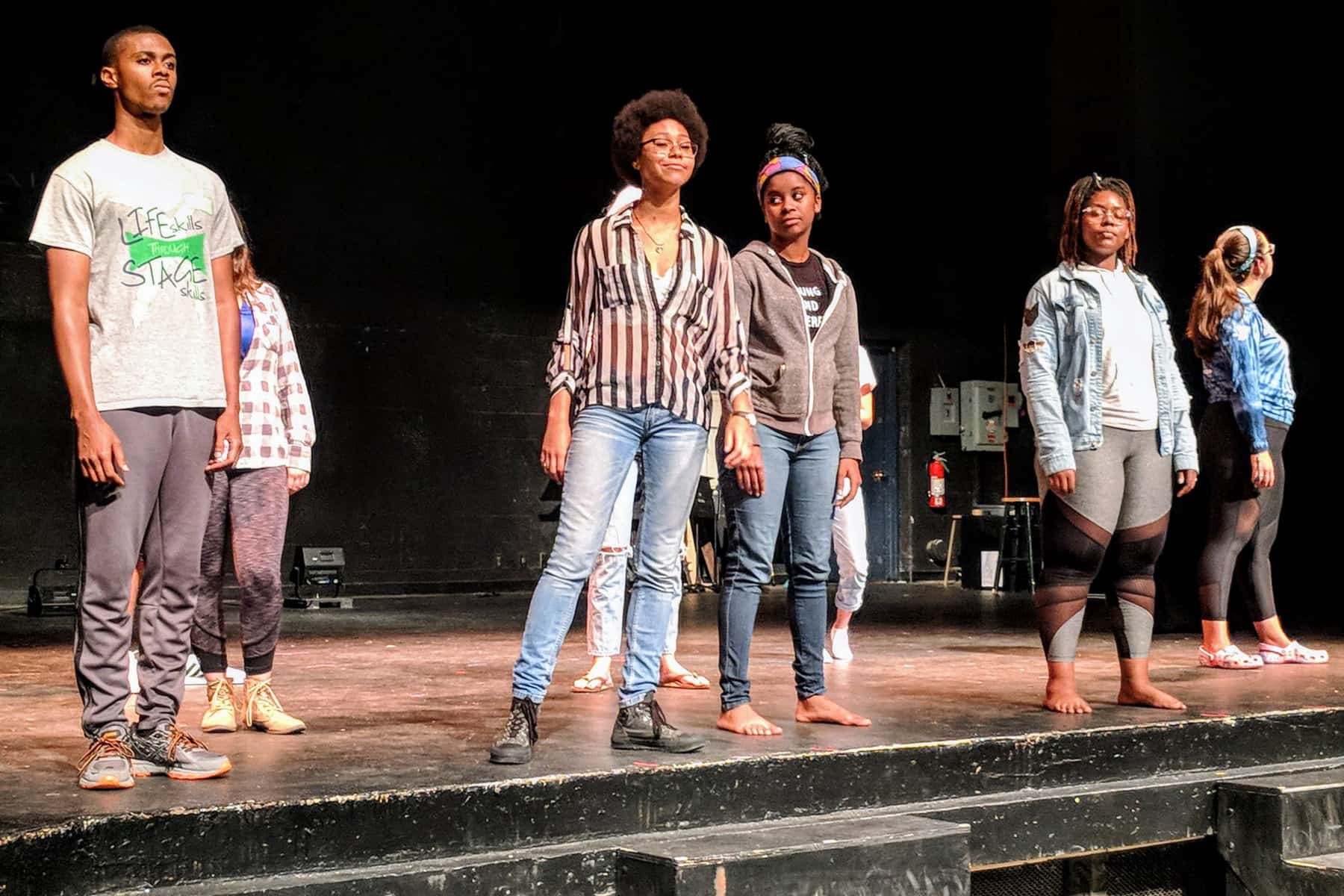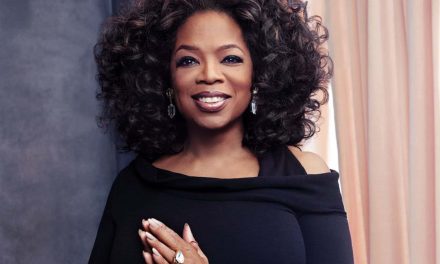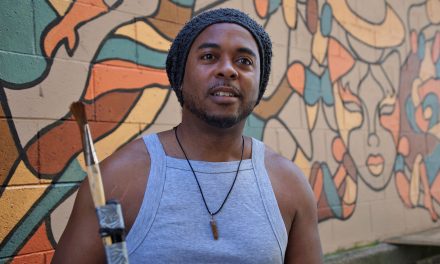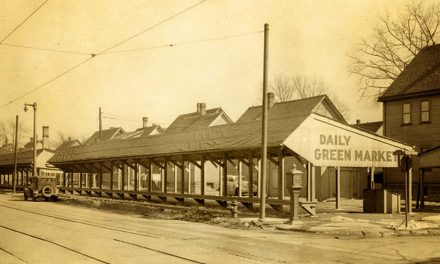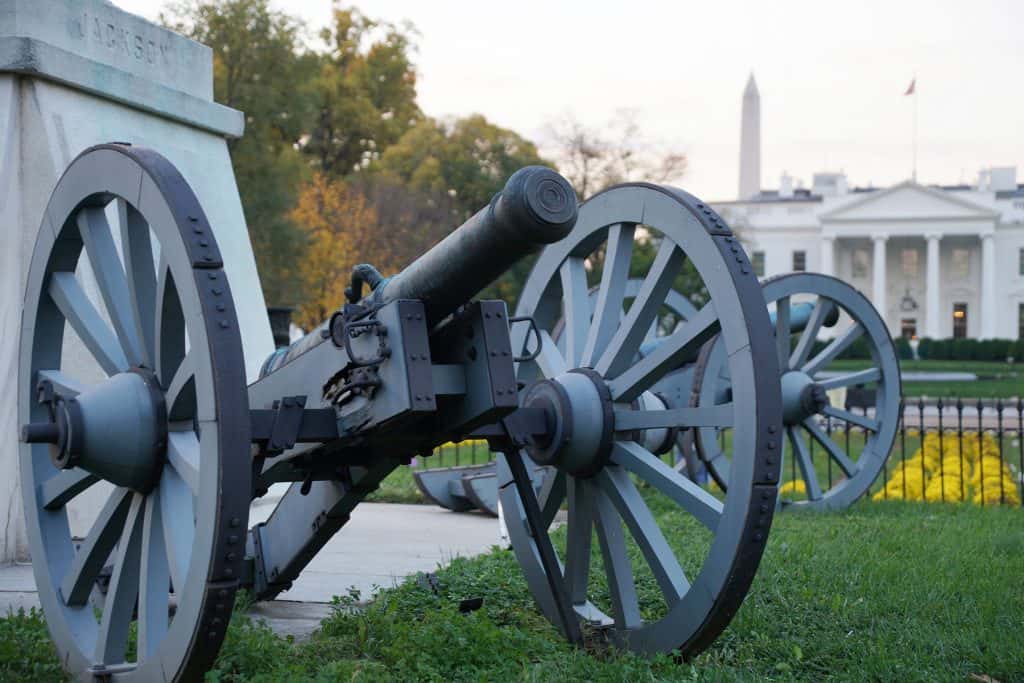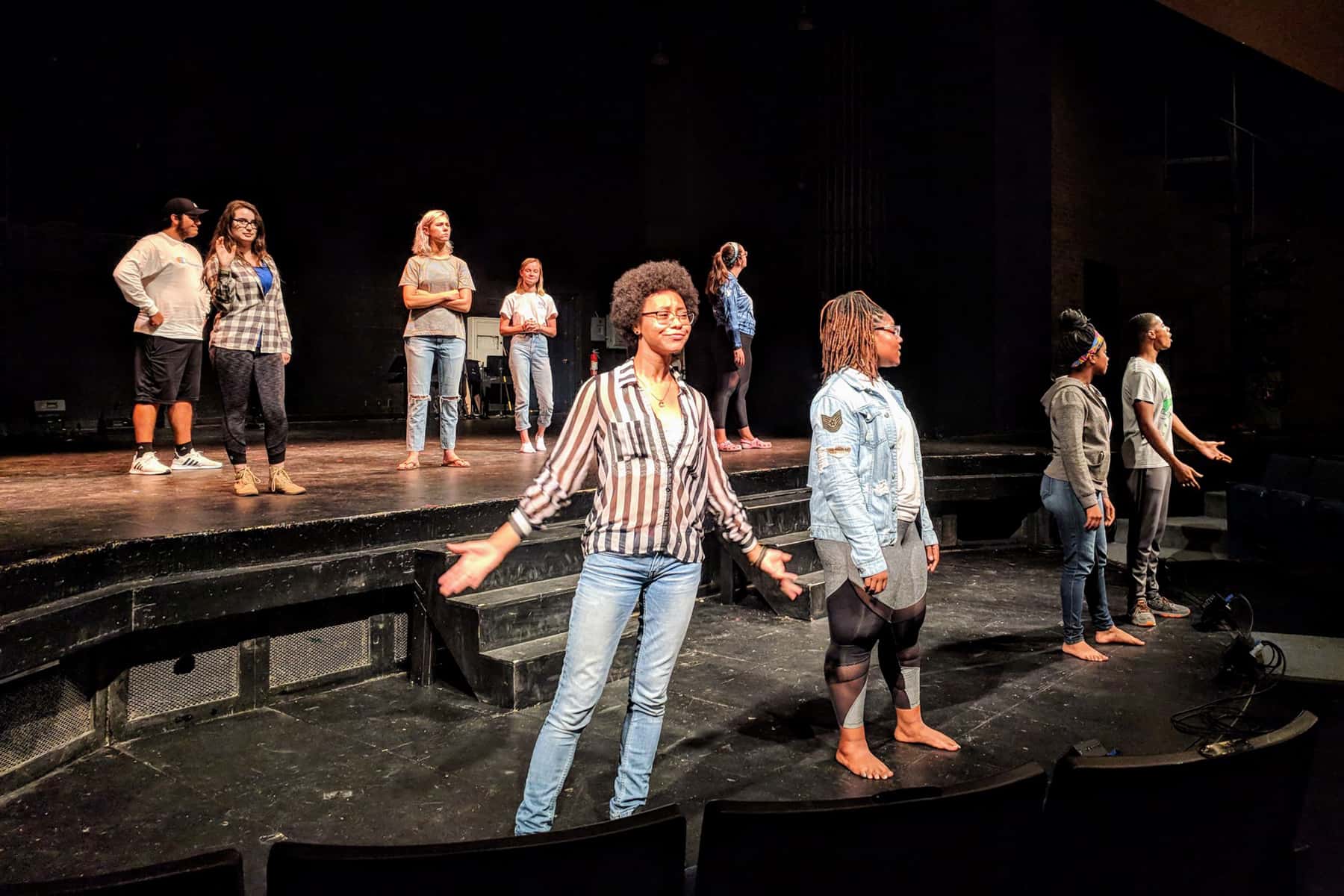
“White Privilege,” a play written by Marquette Theatre student Malaina Moore, has been selected to be performed next month at the Kennedy Center American College Theatre Region III Festival in Madison.
KCACTF is a national theatre program involving 18,000 students from colleges and universities nationwide that has served as a catalyst in improving the quality of college theatre in the United States.
The Region III festival will include plays from schools in Indiana, Illinois, Michigan, and Wisconsin. The Marquette Theatre cast will present a public performance on January 8, at 7:00 pm. The show will be held in the Weasler Auditorium at 1506 W. Wisconsin Avenue.
“This is a major regional competition and a true honor for both our student playwright Malaina Moore and director Debra Krajec,” said Dr. Stephen Hudson-Mairet, chair of digital media and performing arts. “I am very proud of our students’ strong artistry and hard work, as well as the great leadership of our faculty members.”
Moore was inspired to write the play “White Privilege” after seeing a Facebook post that sparked discussion about what the term means to different people. Her play, which was performed to sold-out crowds at Marquette University’s Helfaer Theatre in September, examines how the color of one’s skin can lead to a very different experience of the world.
“Being invited to KCACTF for ‘White Privilege’ had not been something I even expected when writing the script,” said Moore. “However, I am very blessed to be able to take it to larger audiences and continue to impact and change people’s ideas when it comes to racial relationships and the concept of privilege. It is honestly one of my proudest theatrical accomplishments thus far.”
About
Marquette Theatre student Malaina Moore was inspired to write the play White Privilege after seeing a Facebook post that sparked discussion about what the term means to different people. Her play examines how the color of one’s skin can lead to a very different experience of the world.
Q&A with Malaina Moore
Can you explain a little bit both about what White Privilege: the play is about, and then also just kind of the concept of white privilege? What bearing does it have on the play you’ve written called White Privilege?
White privilege is a Facebook post that I saw of a white man who was questioning his black colleagues on what white privilege was. And I had a dream where I thought, “OK, this might be a question that everyone asks.“ To me, white privilege is an advantage that white people have because of whatever was implanted systemically and cemented in our culture of how white people have advantage over any minority, not just black people, and how they treat them.
Expand a little bit on the Facebook post that you saw? What resulted from that? Debate? Resolution? How did that shape your approach to the play?
I think that it was the basis of how I wrote it. It was him asking, “How do I have white privilege? I have grown up in this area, I’ve done this, I’ve done that. I feel like I’ve been humble and kind to all black people.” And then a black woman, who he went to high school with, responded diligently, in several paragraphs, explaining the comparison between their experiences in high school. And this is how it is framed in the show as well, where the white person is saying one thing, and the black person is saying, “Well my experience is this, and this is how you don’t see it.”
It helped me frame how I was going to write the show as far as monologue versus scenes, and what the people were going to hear when they saw it. I even asked fellow colleagues of all different colors on Facebook where they see discrepancies in race with respect to how they are treated and how they treat each other. They are telling me very simple answers like, “White privilege is going to the store and being able to buy skin colored pantyhose.”
That kind of fueled me to think about different avenues as well that i hadn’t even thought about like what we can get at stores, how we portray ourselves, what we can’t say, what we can say as far as even our interactions with the police. Like how I can talk to the police vs. How they can talk to the police.
It was a very influential time for me because I myself hadn’t even thought about that at that point. But a lot of people gave me concrete examples where I can say, “If you don’t think white privilege is a thing, how can I break it down to you better?” And I think that’s what made the play so important is because I can go through it and give people themes now of where they can see it. It’s not just in politics or in the streets, but also school where you can get treated differently by teachers when you’re supposed to be treated equally.
What do you want the audience to get out of this?
It’s a very tricky question. I don’t know, and that’s a very scary thing to say. I want people to understand but I know a lot of people may not understand or may feel like they still have questions and there’s still a gray area. So the most I want is for someone to explain to me or anybody once of what you think this is and how you can fix it. Even being able to identify it in any realm of life. Like I said, it started with this white guy who made this post and said, “Hey black friends, what white privilege do I have?”
I think it’s important to be real with yourself and recognize that this is a problem or this is an issue with my community and how I can fix it. I think that everyone is affected by it and a lot of people aren’t able to explain it. And that is why we deny it so many times. So at least being able to be up front and say that we can fix it. Other than that, I know there are going to be a lot of other feelings, and as a theater artist I think that is very important. I just want people to feel the message and what is actually happening on stage and isolate their own opinion so they can actually just see the overall experience.
When you were writing the play, did you have a specific audience in mind?
I think it’s a universal audience. It’s bringing worlds together. I’ve had people who have watched the show come up to me and say, “I am that person, I am that teacher.” But also for black audiences it’s important because a lot of people don’t see their real experiences on stage.
My dad was one of those people who was like, “Wow, this is the black experience raw and uncut.” But also at the same time being able to educate people on what’s happening in the world. This show is for anybody because even if you don’t think you’re impacted by white privilege or you don’t think you’re impacted by racism, you still are to some extent. I think it’s important that others can identify that. I think everybody can get something out of it, whether it’s seeing a representation of your life or being that representation in someone else’s life.
What do you think has been the most challenging part of the process?
So far, it’s been either writing it because you always have edits, you always want more that you want to add, or things you want to cut, things you want to amplify. So I think that’s very challenging, but also because I did write this for initially for me and my best friend, who is also a black character in the show, and five other characters, it’s hard to get feedback sometimes.
It’s so much of your experience and something very personal to me, so sometimes it’s hard to listen to people who are saying things like, “How do you make this clear for your audience?” It should be clear already and it would make me upset.
But I’ve learned that a lot of people are just trying to help me instead of me taking it as this writing is wrong. I mean, a playwright is never going to stop writing and being sensitive about their work. I think those are the most challenging parts so far.
Is there a scene in the play that has been particularly impactful to you?
I did add scenes from the last time we rehearsed it. From the previous scene, I would say that I actually perform with a little girl who goes to school. It’s kind of like my upbringing, where I go to school where it’s not diverse at all. And there are lots of little things that you don’t notice until you get older and you think, you’re not worth this.”
At the end of the monologue, all this is is a race. And some people start at the beginning, and some people start at the end. And how unfair that is as a child who is so innocent. Having to discover the real world was the most impactful for me because it was my real-life experience of going to school, where just because I didn’t know something it had to be attached to the fact that I was black. Or where I came from versus where nobody actually taught me that.
I use a lot of metaphors in the play. The metaphor about the race and the ladder rung. Every time I try to do it, I would catch myself choking up because it was me on stage being myself, and it was really hard. I think every monologue honestly has that little ding — that little ding of something that’s like, OK, that was touching.
© Link
Interview segment written previously published as White Privilege takes the stage
© Photo
A.J. Magoon

